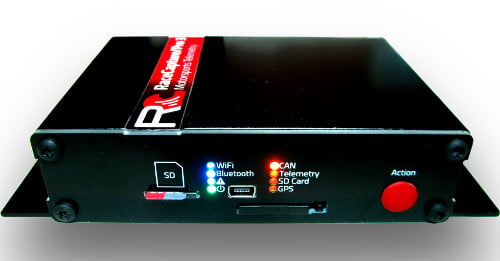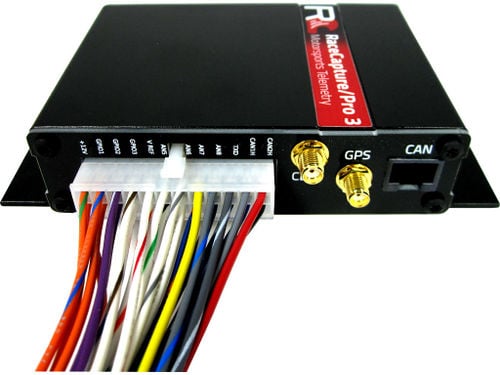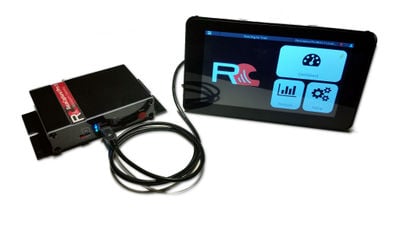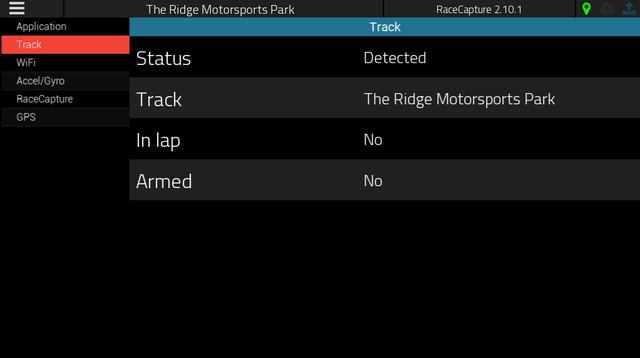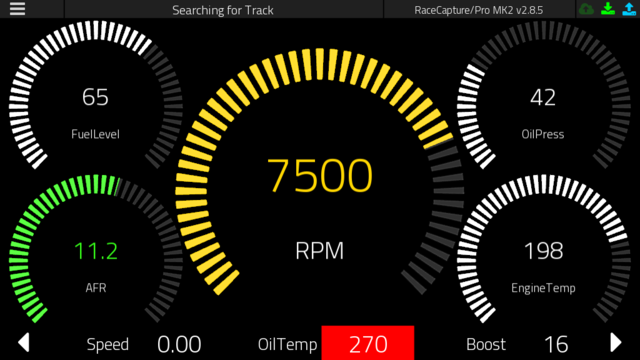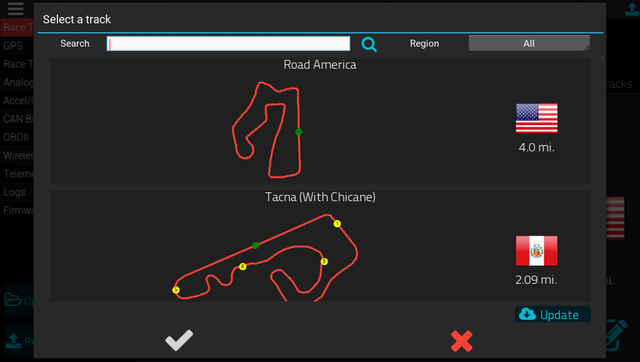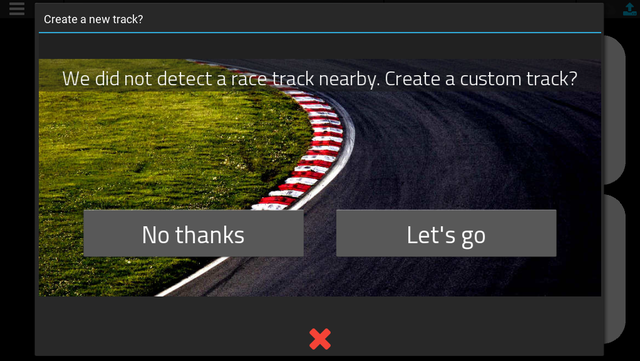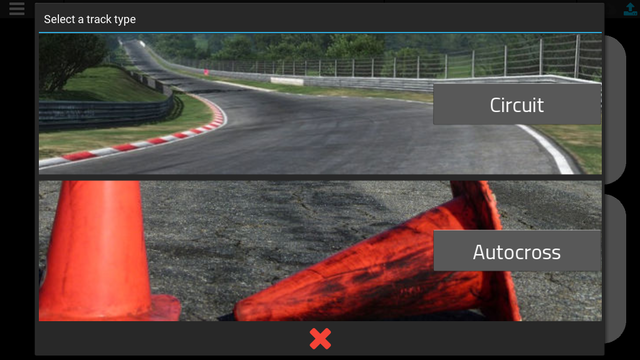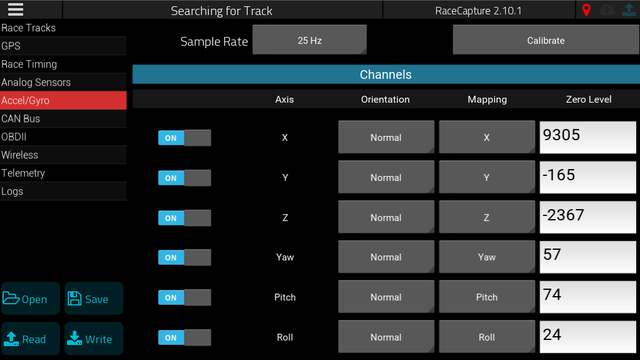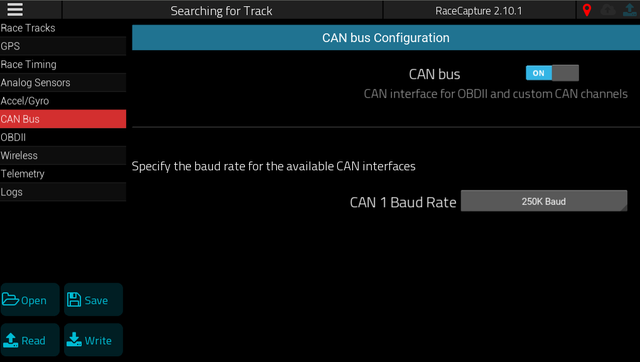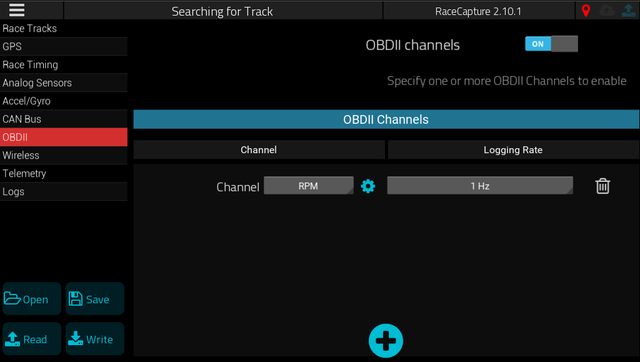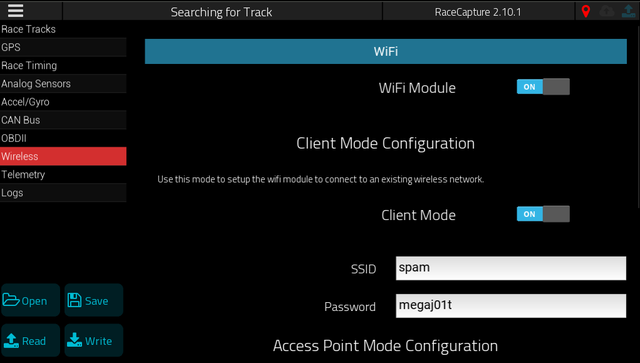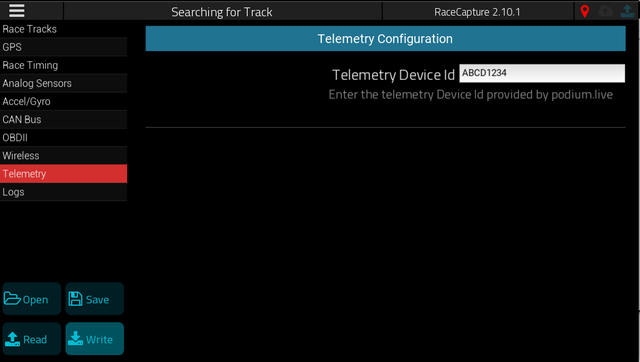RaceCapture-Pro MK3: Difference between revisions
| Line 103: | Line 103: | ||
[[image:Racecapture_raspberry_pi.jpg|400px]] | [[image:Racecapture_raspberry_pi.jpg|400px]] | ||
More advanced users can run the RaceCapture App on a Raspberry pi for a more dedicated dashboard experience. | |||
* Learn more in the [[RaceCapture_on_Raspberry_Pi|Raspberry Pi Guide]] | * Learn more in the [[RaceCapture_on_Raspberry_Pi|Raspberry Pi Guide]] | ||
Revision as of 20:55, 22 April 2019
Overview
RaceCapture/Pro MK3 is our latest generation motorsports telemetry system, packed with features for Endurance Racing, Sprint Racing, Autocross, Time Attack and more.
Product Brief
Guides
- Jump to quick start guide
- Hardware Installation guide
- Real-time Telemetry guide
- Logging Data
- CAN bus / ECU sensor guide
- AIM Integration guide using CAN Mapping
- Lua scripting guide
- Lua script examples
- Sensor guide
- SensorX sensor breakout board assembly guide
- CoilX Tach interface to ignition coils guide
- Automatic Camera control guide
- Creating video with RCP data overlay using DashWare
- Exporting to RaceRender guide
- Data Analysis in Podium to become a faster driver
- Automating Tablets/Phones for use as Dashboards Guide
- Add TPMS data for $225
- General troubleshooting guide
How To
- How to: enable Predictive Timing
- How to: Submit a new race track
- How to: calibrate and configure an analog sensor
- How to: enable OBD2 channels
- How to: enable sequential shift lights
- How to: get best GPS data
- How to update firmware
- How to add video to Podium.live
- More FAQs and How-To's
- How To Videos
By Car
By Sensor Type
Reference
More Information
Quick Start
Powering Up
Using optional OBDII cable (2008+ vehicles)
- Plug one end of the cable into the RaceCapture unit
- Plug the other end of the cable into your car's OBDII port.
- Power and OBDII data will be provided to RaceCapture/Pro.
Powering via 12v
Connect 12-24v and Ground to the connections on the rear molex terminal block using the indicated connections.
Testing on the Bench
You can power RaceCapture/Pro with just the included USB cable. Simply plug one end into your computer, and the other end into the USB connection on the front of the unit.
- Note: When powering only with USB, the voltage reference output will only be at approximately 4.7 volts, which can cause a mis-reading of sensor values. When precise sensor readings are required, provide 12v power directly via the main connector.
Launch the RaceCapture app
On Mobile
- Not sure what tablet to use? See our list of recommended tablets
Connect to your RaceCapture system (dashboard)
Use an Android, iOS or Raspberry Pi device as a dashboard in the car:
Bluetooth (Android Only)
In Android Settings, pair your device with the RaceCapturePro bluetooth adapter.
- Note: Default bluetooth pin is 1234. You can change this later under the Wireless setup in the RaceCapture app.
WiFi (iOS or Android)
In your mobile device WiFI settings, connect to the RaceCapture WiFi network.
- By default, RaceCapture will setup a WiFi network starting with 'RaceCapture', with no password. You can immediately connect to this network.
Once the Wireless configuration is set up, launch the RaceCapture app.
Verifying Connectivity
The RaceCapture app will guide you through a brief automated setup and tour. During this process the connection to RaceCapture/Pro will be verified.
{{#evu:https://www.youtube.com/watch?v=gZrx4w1Y_rc}}
Raspberry Pi
More advanced users can run the RaceCapture App on a Raspberry pi for a more dedicated dashboard experience.
- Learn more in the Raspberry Pi Guide
Connect to your RaceCapture system (On your laptop / desktop)
You can also run the RaceCapture app on your desktop or laptop to make it easier to set up, change settings and view analysis data.
Windows / OSX
Download and install the latest version of the RaceCapture software.
Windows Requirements
- Open GL 2.0 graphics support is required
USB Drivers
- Windows 10: Windows 10 has built in drivers that support RaceCapture. No separate driver installation needed.
- Windows XP, 7 or 8
- USB driver installation: A USB driver will need to be installed. See the driver installation instructions below.
OSX
- USB drivers: OSX has built in drivers that support RaceCapture. No separate driver installation needed.
Connecting and running
Once the RaceCapture software is installed, plug RaceCapture/Pro into your computer via USB, then launch the RaceCapture software.
RaceCapture App Tour
System Status
Access the system status pages through the top left menu. The system status offers information on GPS status, current WiFi state and more. You can also get a copy of the RaceCapture application log for diagnostics.
Dashboard Mode
To view your dashboard, touch the dashboard option on the main screen.
Customizing a gauge
Most gauges can be customized for the channel and setting visual alerts. Touch the gauge you wish to customize, select the channel you wish to monitor and optionally configure alerts.
You can navigate between dashboard screens by swiping left or right, or press the arrow buttons in the lower corners of the screen.
Track mapping and predictive lap timing
RaceCapture/Pro offers predictive lap timing, which relies on a robust track detection system leveraging hundreds of track maps worldwide.
How it works
- When GPS receives a lock, RaceCapture will search for a nearby track.
- If a track is detected with one configuration, it is automatically selected.
- If a track is detected with multiple configurations, the RaceCapture app will prompt you for which configuration you're using.
- If no tracks are detected nearby, the RaceCapture app will offer the ability to create a track on the spot.
- If you're not able to immediately create the track, you can do so later under Setup.
- Track not found? Submit the track to us and we'll get it into our online database.
Setup Mode
You can configure all of RaceCapture's options under the setup page.
When the RaceCapture app detects the connected hardware, it will read the current setup from the device.
- The setup information is presented as a series of pages, by topic.
- When you change something on a setup page, you'll need to Write the changes back to the unit - they do not take effect immediately.
Explanation of buttons
- Save: Save the current RaceCapture setup to a file, for backup.
- Open: Load a previously saved setup file.
- Read: Read the current setup from the RaceCapture device.
- Write: Writes any updated changes back to the RaceCapture device. Note: when you see the write button glowing / pulsing, it means there are pending changes to write back to the RaceCapture device
Race Tracks
On the Race Tracks page you can create a custom track, which will be included in the library of track maps for automatic detection. To create a custom track, turn off 'Automatic race track detection' and then press the add (+) button. You will be presented with an option to create a circuit or Autocross (point-point) style course. Follow the on-screen instructions to create your track.
GPS
The GPS page allows you to adjust the GPS sample rate and enable/disable various channels.
- Note: We highly recommend you keep the default channels enabled for proper operation of analysis and lap timing.
- 10Hz is the recommended sample rate for the best balance of performance / accuracy. Getting the best GPS performance
Race Timing
These enable the lap timer and predictive lap timer. Leave these 'on' to enable these features.
Analog Sensors
Here you can configure and calibrate your analog sensors.
Accel / Gyro
The recommended mounting orientation for RaceCapture is square with the chassis.
- You can re-map channels by re-assigning the physical axis to the mapped channel.
- Once defined, you can calibrate the accelerometer + gyro by pressing the calibrate button, and then pressing the write button to write the calibration back to RaceCapture.
CAN bus
For OBDII operation, ensure the CAN bus is set to On.
- Common baud rates for OBDII are 500K and 250K. The default is 500K, which applies to nearly every CAN OBDII vehicle. AIM CAN is 1M.
OBDII
You can select from a standard list of OBDII channels on the OBDII configuration screen.
Selecting sample rates
For channels that require a faster response rate, like RPM and TPS, we recommend 10, 25 or 50Hz. More slowly changing channels like EngineTemperature should be set to 1 or 5Hz.
- Note about unsupported channels: If your ECU does not support a channel, the value will remain at 0. RaceCapture will time-out waiting for a response from the ECU, which will affect the performance of other channels. We recommend removing all unsupported channels to ensure optimal OBDII performance.
Wireless
You can configure RaceCapture's WiFi for both Access Point and Client mode.
Client Mode
To enable client mode, specify the SSID and password for the network you wish to connect to and turn the client mode switch to on
Access Point Mode
To enable the RaceCapture access point, specify the SSID and a password.
- Note: If specified, passwords must be minimum of 8 characters. Leave the field blank to create an open network.
Real-time Telemetry
You can live-stream your data to Podium so you can compare and share laps and runs with your friends.
<img src="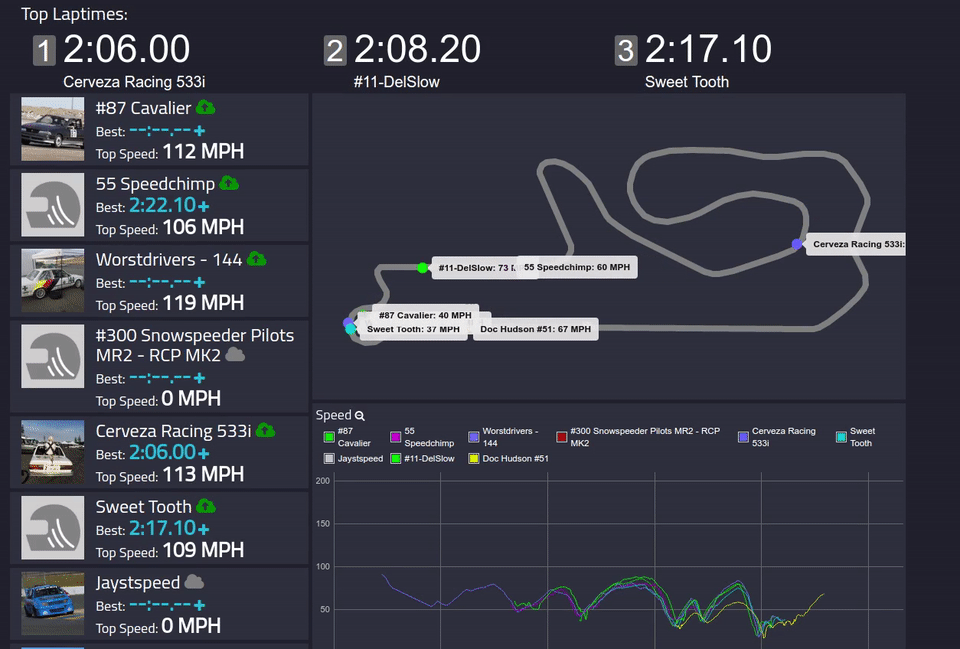 " width="640"/>
" width="640"/>
Enabling Telemetry
- Create an account on Podium and create a device ID.
- Enter the provided device ID into the telemetry configuration page of your RaceCapture app
- Enable the telemetry option in the top level application preferences.
Diagnostic Logs
To view the log messages provided by the RaceCapture unit, you can enable the Poll log check box. You can copy the current log to the clipboard by pressing the Copy button.
- Note: These logs are useful for diagnosing issues with your RaceCapture unit.
Analysis Mode
RaceCapture will automatically record your session in the background while in dashboard mode. To view the data, enter the Analysis mode and load an existing session. The session will be automatically named with the local track or with a timestamp.
{{#evu:https://www.youtube.com/watch?v=Hi9nA2N87RY}}
Reviewing Laps
If the data contains lap times, the laps will be shown in the dropdown list on the right. Select the laps you wish to compare; the Speed channel is selected by default.
- Comparing additional channels: You can review additional channels by pressing the gear icon on the line chart.
Swipe across the data to compare various points correlated with the position on the track map.
- Zooming you can zoom the chart using a two-finger pinch gesture, or using the mouse scroll wheel or your laptop's trackpad scroll feature.
Selecting time vs distance
You can switch between time and distance data comparison by accessing the chart options, or pressing the -> or clock icon in the line chart.
Reviewing raw data
If your data contains no laps, such as data from a static test or dyno pull, the data will be present in one entry under the loaded session. Select this entry to view the data. The RaceCapture app will auto-select the Time dimension if it detects no significant distance traveled within the data.
Comparing laps / runs between sessions
You can compare data between sessions if they are in a coinciding location - just load multiple sessions and select laps between those sessions.
Exporting Data
You can export your sessions from your list of saved sessions.
Importing to 3rd party software
The RaceCapture log file format is plain CSV, which can be imported into 3rd party software.
- RaceRender provides native support for the RaceCapture log file format. See the exporting to RaceRender guide.
- DashWare has been used by RaceCapture customers - Rowan Hick has a write-up on Dashware integration.
Specifications
| Sensors | |
| Analog Inputs | |
| Channels | 9 (8 external + 1 internal battery/supply voltage) |
| Voltage range | 0-5v |
| Input impedance | Greater than 1M ohm |
| Voltage Protection | 400v (intermittent) |
| ADC precision | 12 bit |
| Maximum sample rate | 1000Hz |
| Mapping | Raw / linear formula / interpolated map |
| Digital I/O | |
| Channels | 3 |
| Output mode type | Open Drain |
| Output current capacity | 1A, inductively clamped |
| Input mode voltage range | 0-12v |
| Input voltage protection | 0-40v |
| Maximum sample rate | 1000Hz |
| Timer inputs (RPM / Frequency) | |
| Channels | 4 |
| Voltage Protection | 400v (intermittent) |
| Maximum sample rate | 1000Hz |
| Mapping | RPM, Frequency |
| Voltage Reference | |
| Output Voltage / Capacity | 5v / 500mA |
| CAN Bus | |
| CAN Channels | 2 |
| CAN baud rate | 125K, 250K, 500K, 1M Baud |
| CAN filters | 14 per channel |
| Protocol Support | OBDII PID, custom CAN mapping |
| CAN Bus | CAN 2.0 compatible, 1M baud |
| CAN termination | Software controlled |
| Serial | |
| Aux Serial | RS232 |
| Max Baud Rate | 230400 |
| Cellular Telemetry (Optional) | |
| Cellular | 3.5G GSM worldwide compatible |
| Maximum Sample Rate | 10Hz |
| Wireless | |
| WiFi | 802.11bgn |
| WiFi Modes | Access Point, Infrastructure |
| Bluetooth | Bluetooth 2.0 |
| Maximum Sample Rate | 50Hz (Bluetooth and WiFi) |
| GPS | |
| GPS Type | External active antenna |
| Sample Rates supported | 1 / 5 / 10 / 25 / 50Hz |
| GPS accuracy | 2.5M CEP |
| Inertial Motion Unit | |
| Accelerometer Channels | 3 (X/Y/Z) (2G, 4G capable) |
| Gyro Channels | 3 (Yaw/Pitch/Roll) (1000 degrees/sec) |
| Storage | |
| Micro SD | Up to 32GB (SDHC) |
| CAN bus direct mapping | 30 direct CAN mapping channels |
| Capabilities | |
| Channel Support | 200 |
| Predictive Lap Timing | Built-in |
| Track Mapping | Circut and point-point |
| Track maps | 200 built in for autonomous auto-detection; unlimited via RaceCapture app with interactive track map builder |
| Sectors per track | 20 |
| Analysis | Included in the RaceCapture App |
| Export data format | Plain CSV (RaceRender compatible) |
| Physical | |
| Dimensions | 150 x 85 x 30mm (5.9 x 3.35 x 1.18in) |
| Temperature range | -40 to 85c |
| Environmental | IP50 rated |
| Weight | 255g (12 oz) |
| Physical | Molex Connector, 24 pins SMA for external GPS antenna SMA for cellular module |
| Power Consumption (max) | Main System: 0.6W With Wireless: 1.6W With Cellular Telemetry: 8.6W With Cellular Telemetry and Wireless active: 9.6W |

